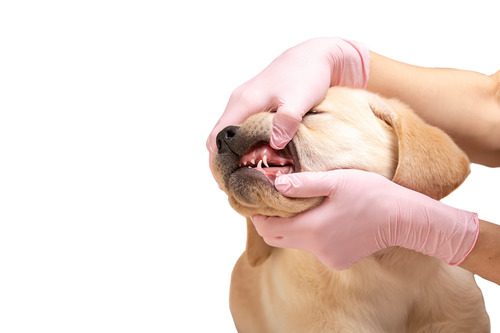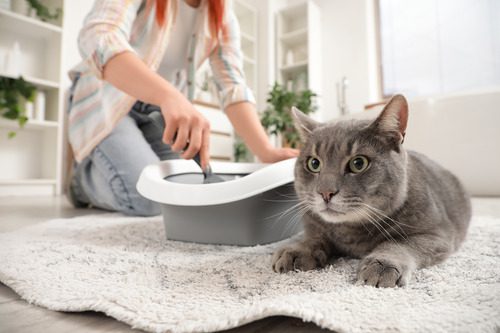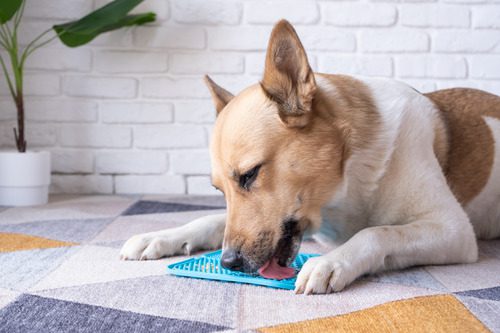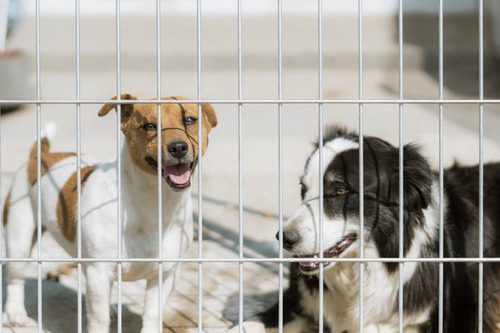Dental Disease in Dogs Symptoms
Dental health is a crucial aspect of your furry friend’s overall well-being. Neglecting pet dental care can lead to a host of problems, including dental disease in dogs. As responsible pet owners, it’s essential to understand the symptoms of dental disease and take proactive steps to prevent it. In this article, we’ll examine the signs of dental disease in dogs and provide tips on how to keep your canine companion’s teeth healthy.

Understanding Dental Disease in Dogs
Dental disease, also known as periodontal disease, is one of the most common health issues affecting dogs. It occurs when plaque and tartar build up on the teeth, leading to inflammation of the gums and eventual damage to the surrounding tissues. Without proper treatment, dental disease can progress, causing pain, tooth loss, and even systemic health problems.
Symptoms of Dental Disease
Recognizing the signs of dental disease is the first step in addressing this issue. Keep an eye out for the following symptoms:
- Bad Breath (Halitosis): Persistent bad breath is often an early indicator of dental disease in dogs. The odor is caused by bacteria thriving in the mouth due to plaque buildup.
- Visible Tartar and Discoloration: Take a close look at your dog’s teeth. If you notice yellow or brown buildup on the teeth or along the gumline, it could indicate the presence of tartar.
- Red or Inflamed Gums: Healthy gums should be pink and firm. In dogs with dental disease, the gums may appear red, swollen, or bleed easily when touched.
- Difficulty Chewing or Eating: Dental pain can make it challenging for dogs to chew their food properly. Watch for signs of discomfort while eating, such as favoring one side of the mouth or dropping food.
- Drooling: Excessive drooling can occur when dental issues cause discomfort or pain in the mouth.
- Changes in Behavior: Dogs with dental pain may become irritable or withdrawn. Keep an eye out for behavioral changes, such as reluctance to play or a decrease in activity level.
Preventing Dental Disease
Fortunately, dental disease in dogs is largely preventable with proper care. Here are some tips to keep your pet’s teeth healthy:
- Get your dog accustomed to regular tooth brushing using a pet-safe toothpaste and a soft-bristled toothbrush. Aim to brush your dog’s teeth at least a few times a week, if not daily.
- Providing your dog with dental chews or toys designed to promote oral health can help reduce plaque and tartar buildup. Look for products approved by veterinary professionals.
- Schedule regular dental examinations with your veterinarian. These visits allow your vet to assess your dog’s oral health and catch any issues early on.
- In addition to home care, professional dental cleanings are essential for maintaining your dog’s oral health. Your veterinarian can perform a thorough cleaning under anesthesia to remove plaque and tartar buildup.
- Choose a high-quality diet that supports dental health. Some specially formulated dog foods are designed to help reduce plaque and tartar accumulation.
The Importance of Professional Teeth Cleaning for Dogs
Professional teeth cleaning for dogs is essential for maintaining optimal oral health. Your dog will be placed under anesthesia for the duration of their teeth cleaning. Anesthesia ensures a stress-free experience, allowing for a thorough cleaning while prioritizing your dog’s comfort and safety. Professional cleanings remove stubborn plaque and tartar buildup, preventing the progression of dental disease. During this cleaning, your veterinarian will examine your dog’s mouth for any underlying issues, allowing for early detection and treatment. This can uncover hidden dental issues and allow our team to provide the necessary treatment to alleviate pain and improve your dog’s oral health. Regular cleanings contribute to your dog’s overall well-being, reducing the risk of dental disease-related complications.
Contact Best Friends Veterinary Hospital Today!
Dental disease in dogs is a common yet preventable condition that can have serious consequences if left untreated. By understanding the symptoms and taking proactive steps to promote good oral hygiene, you can help ensure your dog enjoys a lifetime of healthy smiles. If you notice any signs of dental disease in your furry friend, contact us at Best Friends Veterinary Hospital to schedule an appointment for a thorough dental examination and cleaning. Your pet’s dental health is our priority!
Recent Posts
About Best Friends Veterinary Hospital
Our veterinarians and staff warmly welcome dogs, cats, and a variety of exotic pets as patients here at our animal hospital, and we offer a host of services to give your unique family member a lifetime of excellent care.





